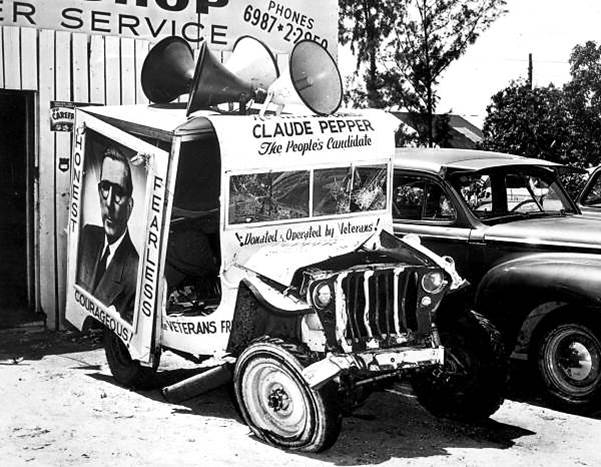‘No such thing as bad PR’ was always a dumb line. And it’s been made to look even dumber in recent weeks.
by Rebecca Roberts
OK, that Newsnight interview, that phone ringing (twice), was a nail in an inevitable coffin of PR giants Bell Pottinger this month, after standing accused of stirring up racial tension in South Africa. But it’s not the only example of why there is such a thing as bad PR.
Oddly, despite PR having battled its way onto the senior table in many organisations, often down to its capacity to drive and protect reputation and establish profile and credibility underpinning marketing efforts, too often it is deemed an add-on, something to be picked up and dropped off as and when a company needs or wants it.
I’ve worked many crisis communications issues and typically going through a crisis issue is a good measure of where an organisation is in terms of where PR sits in relation to business strategy and brand reputation. But it shouldn’t be left to something bad happening – the point of good PR is that you’re ready for the good and the bad profile opportunities.
Going through a crisis is a good measure of where an organisation is in terms of where PR sits
Four things that avoid PR being treated as a bolt-on
- Senior buy-in: getting agreement on how the organisation might deal with reputation issues, where it will speak proactively, understanding of the tone of voice and buy-in to any communications strategy is key to enabling processes to support the PR effort. This is obviously far easier said than done but making a case and getting it to the top has to be a goal if you’re not already fortunate to be having those discussions.
- Storytelling done right: Once upon a time there was PR done in the form of stunts and fluff and didn’t link back to any core messaging or strategic direction of the business, it died and also didn’t help proper PR. Sad but true story. Storytelling done right can really help to ignite a response, resonate and change mood, impact upon sales and improve reputation. Check out this Social Storytelling Skills download from the CIPR.
- Have a stress-tested Crisis Plan: Crisis communications can inherently make some people particularly nervous, as if writing the worst could in some magical way make it actually happen. But it’s important that you, with reasonable likelihood, map out potential crisis issues and develop processes and structures behind how you would then deal with them. Having a team test these out does help but obviously the real test will come when something, even marginally close to a crisis, happens and then not only will you get chance to see how your plan works, you can adjust and improve it – every time. This is a nice hit list on ready.gov to get you started. By the way you also have to involve people in developing this plan and tell people where it exists – otherwise you’ve wasted your time.
- Develop a long-term view: Yes, PR can help with the here and now, a fancy launch for this, a media op for an expert there, it’s all part of the picture, but longer term there can be strategic gains from PR being part of the direction of travel. Understanding the strategic goals of the business and looking long term to how continued PR support can help achieve those goals is also enabling a more strategic and critical role for communications.
Who doesn’t like a PR faux-pas though….actually business owners, shareholders and the team that came up with them.
Here are 5 bad PR moments we should keep learning from.
- Ratner’s “total crap” endorsement: I was fortunate enough to hear Gerald Ratner speak last year and his retelling of the Ratner downfall was a cautionary tale for any public facing senior figure who decides to take on their own PR and say what on earth they’re thinking. His historic address to the Institute of Directors Annual Convention in 1991, where he described Ratners’ low-cost products as “total crap” helped to wipe an estimated £500m off the value of the business.
- KKK Wednesday anyone? A Krispy Kreme franchise in Hull advertised an event called “KKK Wednesday” back in February 2015 (honestly). It stood for Krispy Kreme Klub but clearly their brainstorming session didn’t go through potential risk factors on that one, which was swiftly pulled and apologised for as an “unintentional oversight”.
- SeaWorld sinking the worse AMA. Ask Me Anything opportunities are notorious to manage and with a challenged public profile, it was perhaps a poor choice for SeaWorld in 2016. A website is connected to their Twitter profile and is dedicated to answering select questions which are flooded with negative questions about animal treatment which go unanswered.
- Vanderbilt University needed a better motto. In 2016 two Vanderbilt University football players had been tried for the aggravated attack on an unconscious woman. All the more remarkable is the social media content and motto for the year that they chose – “We don’t need your permission.” It was swiftly followed up with an apology and removed.
- Ted Cruz liking pornographic tweet. It’s all down to a staffer, apparently, but earlier this month Senator Ted Cruz came under massive public scrutiny after liking a pornographic Twitter post which then caused an offensive video to be posted to his account. Whilst the team accessing the account will no doubt be revised, the widespread public engagement with this story has not done much for his reputation.
Rebecca Roberts is founder of Thread & Fable
image via Florida Memory

